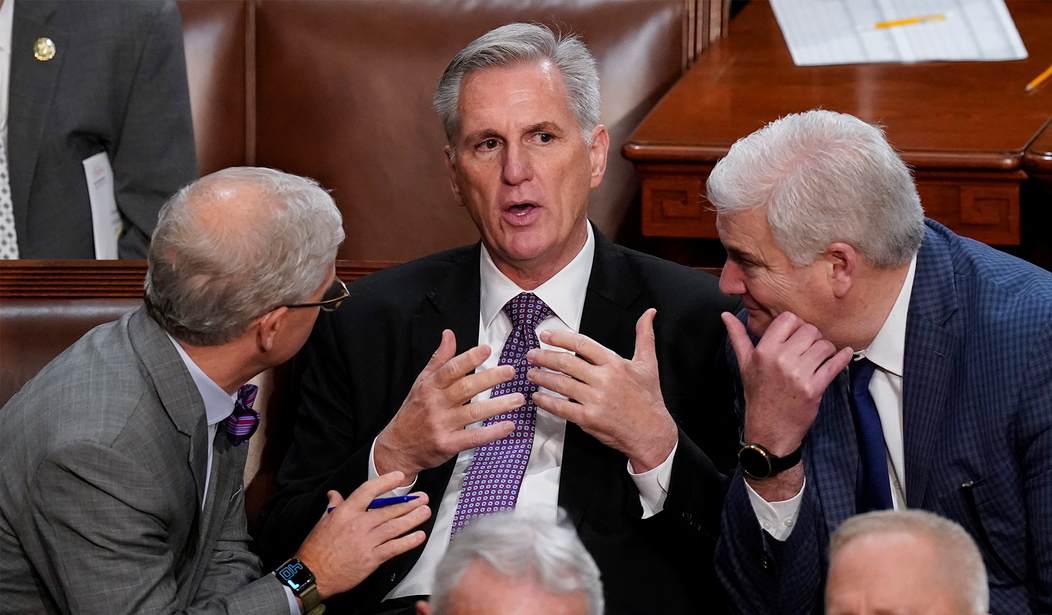On Tuesday, members of the House Freedom Caucus staged a protest vote effectively creating a procedural blockade that holds the Republican-controlled House at a standstill. After nearly an hour of efforts by Republican leaders to address the confrontation with their conservative faction, which disrupted the party’s agenda to pass a bill safeguarding gas stoves from potential government bans, approximately twelve conservatives predominantly affiliated with the Freedom Caucus ultimately voted against advancing a bill that they ideologically support.
According to two individuals close to Republican leadership, the action caught senior Republicans completely off guard. Other GOP legislators expressed concerns that this could be the initial stage of a conservative campaign to undermine Speaker Kevin McCarthy’s leadership unless he fulfills the commitments he made to secure the Speakership seat in January.
Congressman Dan Bishop (R-N.C.) is among the Freedom-faction and said that the group has not made a decision yet on whether to attempt to oust the Speaker. Bishop added that the Republicans who voted no on Tuesday haven’t decided yet if they will further obstruct votes to make their point, saying:
But the problem that has been precipitated entirely by the speaker’s approach to the debt ceiling is going to have to be dealt with.
Bishop suggested that an agreement to return federal spending at fiscal 2022 levels was violated by the debt deal, but it’s unclear if the term was ever agreed upon.
The disruption, which forced the GOP to postpone the deregulatory bill, revealed that tensions between McCarthy’s team and the House Freedom Caucus are likely to persist. By demonstrating their ability to disrupt House proceedings, the rebel conservatives also indicated that they have not ruled out attempting to oust McCarthy.
Rep. Scott Perry (R-Pa.), Chair of the Freedom Caucus, did not participate in the protest vote but said:
I think we have some unresolved issues from last week.
When asked to elaborate further, Rep. Perry only said:
There are a lot of them.
While some reports have characterized the protest vote and procedural stalling with words like “rebellion,” the C-SPAN cameras didn’t catch anything too spicy, aside from some heated negotiations.
Seeing lots of tweets about "clash on the floor" between GOP Leadership and House Freedom Caucus during this vote.
C-SPAN doesn't control cameras in the House Chamber, so here's what the public gets to see.
(h/t: @heatherscope @Olivia_Beavers) pic.twitter.com/iEoy79SM0A
— Jeremy Art (@cspanJeremy) June 6, 2023
At the heart of Tuesday’s dispute is an allegation by Rep. Andrew Clyde that GOP leaders had threatened to derail his bill to repeal a Biden administration gun regulation unless he supported advancing last week’s debt deal. Clyde voted against the debt ceiling, leading to allegations of retribution when his bill protecting pistol brace ownership was rescinded from the calendar.
However, Majority Leader Steve Scalise, who determines the legislation brought to the floor, denied Clyde’s allegation prior to the vote. Nevertheless, Clyde delivered a rebuke of Scalise, and later Scalise was seen engaged in an intense conversation with the rebel conservatives on the House floor as they voted against advancing the gas stove bill in protest.
After the unsuccessful vote, Clyde had a meeting with Scalise but refrained from revealing the details, stating only that the conversation was productive. Clyde remained frustrated by what he perceived as a threat from GOP leaders linking the fate of his gun proposal to his voting alignment last week. Scalise, upon leaving the meeting, suggested that Clyde’s bill faced challenges in securing sufficient support from fellow Republicans, but he expressed his intent to bring it to the floor for a vote in the following week.
Read More:
Biden’s ATF Loses on Biden’s Signature Pistol Brace Ban but a Bigger Loss Is on the Way
House Freedom Caucus Slams the Debt Ceiling Deal
Later on Tuesday, Rep. Clyde posted on Twitter confirming that GOP leadership will bring his pistol-brace bill to a vote on the House floor on Tuesday.
BREAKING: House GOP leadership just confirmed my resolution to block the ATF’s unconstitutional pistol brace rule will come to the House floor for a vote next Tuesday.
I will hold them to this promise.
And I will never back down in the fight to defend our natural rights.
— Rep. Andrew Clyde (@Rep_Clyde) June 6, 2023
The prospect of attempting to remove McCarthy from the position of speaker, known as a motion to vacate the chair, was referred to as “the nuclear” option by Rep. Clyde. He indicated that discussions on this matter had not taken place and emphasized the need to address issues within the Republican conference before considering such a drastic measure.
House Freedom Caucus members went into the Speaker’s office for a meeting following the floor gas stove bill interference, but details of the discussion are sparse and vastly speculative.
FREEDOM Caucus members leave @SpeakerMcCarthy office saying unclear if they will drop blockade and allow House to resume business
— Erik Wasson (@elwasson) June 6, 2023
While the situation remains fluid, Tuesday’s Freedom Caucus “strike” showcased the growing tensions within the Republican Party and highlighted the leadership challenges McCarthy faces in maintaining conference unity and pursuing the party’s agenda.













Join the conversation as a VIP Member